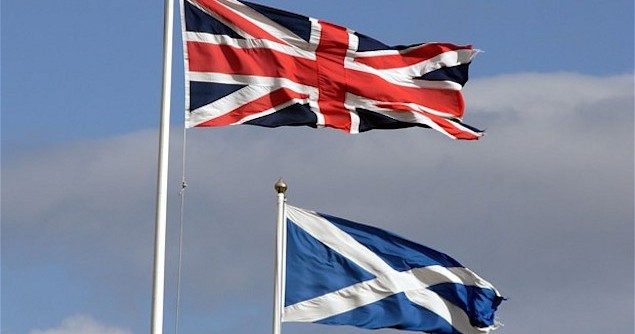Scotland Votes No

55% of Scots have decided that Scotland should remain part of the United Kingdom. So is this the end of Scotland’s push to become independent, or was it just a false start?
The votes have been tallied and the results are in: the Scots have rejected independence by 55% to 45%. While many international observers—2,001,926 Scottish voters and certainly the British Labour Party—breathe a sigh of relief; the 1,617,989 Scots who voted ‘Yes’ are still reeling. Last Friday night saw fights break out in central Glasgow between the Yes and No campaigners, revealing some of the frustration and friction left by last Thursday’s decision.
Immediately following the announcement, Alexander Salmond’s Facebook photo changed from ‘Yes Scotland’ to ‘One Scotland’; a sign that the Scottish National Party (SNP) recognises that the most important thing for Scotland right now is not to let its people be divided on voting lines. Certainly, just because the No camp won, it does not mean that the 1,617,989 Scots who want independence will abandon their claims. So will the Yes campaigners lick their wounds, regroup and re-strategize? Or will the push for independence begin to wane as Scots are offered maximum devolution of powers from Westminster?
As it stands, the former option has already run into a number of hurdles. Salmond’s post-referendum retirement announcement is a huge blow for the SNP and for the independence movement. He was the architect of the referendum and it was his enthusiasm and inspirational quality that made independence a real possibility. His announcement leaves the SNP and the independence movement with an uncertain future and many unresolved tensions.
While Deputy Minister Nicola Sturgeon seems a likely successor, the party is in real danger of splitting. The SNP is a ‘small-c’ conservative party, and post-referendum, it will face an uphill battle trying to accommodate the thousands of “environmentalists, socialists, trade unionists, students, single-issue campaigners and others” who came together to campaign for independence. The desire to see their bids through will not be easily placated by greater devolution from Westminster. These campaigners may well branch off into their own left-wing nationalist party and risk ostracising more middle ground voters. Then there are those in the party who, for now, will be content to busy themselves by “holding Westminster’s feet to the fire on the vow that they have made to devolve further meaningful power to Scotland.” Only if the next leader of the SNP is able to somehow accommodate both groups and reconcile their divisions do the party or the movement stand any real chance in the future.
It is easy to draw parallels between the Scottish referendum and Quebec’s 1995 independence vote. In both instances, the Unionists (or in Quebec’s case, Federalists) won a narrow victory after hard fought battles and promises of increased regional powers. In Quebec, support for independence began dwindling soon after the failed vote. Canada’s current Prime Minister, Stephen Harper, claims this was down to a younger generation who had seen their parents obsess about separation and concluded it was a waste of time. In Scotland however, a lot of the Yes voters came from the younger generation, as Scots as young as 16 were able to vote for independence. David Cameron has declared that the No victory should put an end to the independence debate in Scotland “for a generation”. There may be more truth to that statement than he realises.
In the months leading up to the referendum, many Scottish high schools held mock referendums to prepare the newly enfranchised electorate for voting. This week, the Telegraph interviewed some of those students, many of whom were highly disappointed by the result. Interestingly, some of the pupils expressed the opinion that this referendum was “a warm-up, with another just 10 or 15 years away.” Three of the No voters interviewed by a Telegraph journalist at Nairn Academy say they actually believed in independence, but don’t think the time is right.
“I read Salmond’s White Paper—it was a lovely dream,” claimed 17-year-old student Amy Winfield. “He couldn’t say how the currency would work. Maybe they’ll work that out in the future.” She adds that while “the oil might run out in 10 years’ time […] renewable energy won’t be ready for 30 years.” Other students mention the deep-seated resentment many Scots still feel toward the English, which the referendum seems to have dragged to the fore. “That’s why this debate won’t go away now” Rebecca Liddle notes, “this argument is just getting started”. Given that children are the future, Unionists had best not breathe too heavy a sigh of relief just yet.
Katherine Gordon is a former intern at the AIIA in Sydney. She has a Masters degree in International Security from the University of Sydney and is currently working for the Public Service in Canberra. The views in this article are her own. She can be reached at kgor4743@uni.sydney.edu.au.





